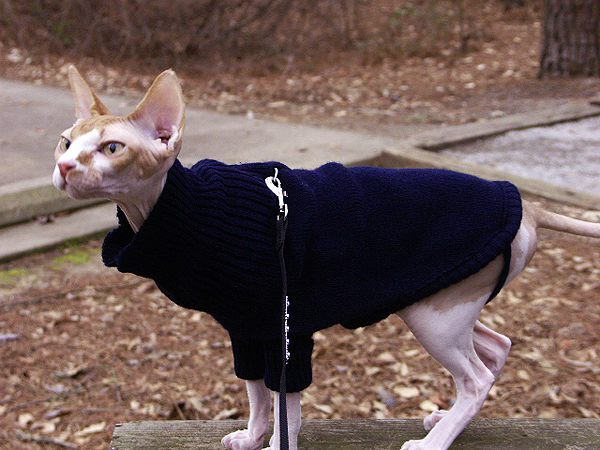Today marks the 3rd anniversary of the day we lost Gimli. We lost him during a routine dental cleaning due to the use of Ketamine. Gimmie suffered a heart attack on the table, not twenty minutes after we left him in their "care". As stated in this blog previously, I asked questions, we did a blood panel, I specifically asked about the anesthesia, I thought I had covered all bases and left both Gimli and his brother, Bilbo, with our vets thinking they were in good hands. It didn't turn out that way. We lost him there in his physical form but he is with us and fighting for others in his "spiritual" form. I do not mean that in a religious way. But his spirit lives on in my determination to share his story with others through this blog. I thank those of you who have stopped for a while to read and consider - or better yet - reconsider the use of Ketamine. For three years I have tried, in a very small way, to bring attention to the potential dangers of the drug, Ketamine, used to anesthetize Sphynx. This drug is of potential danger to all pets but my platform is not *all* pets, it is all Sphynx. Even the heart healthy ones could be at risk, why? Because even confirmed clear hearts - free from HCM - can become at risk for HCM. Your Sphynx that scanned clear this year at age x,y,z could scan positive the next year or year after, etc. Until the genetic marker is found (Sphynx Research through Dr. Kate Meurs) all of our breed is at risk for the disease. But, we all understand that. We scan, or most of us do, now. We monitor them, we medicate them if they have scanned positive, we rescan them .. yearly for breeders (reputable ones, I should say) ..or at intervals that our vet cardiologist suggest, if we are pet owners. Scanning is a must. Ketamine, in our breed in particularly, can prove fatal. It may not happen the first, second or even third time used, but if your Sphynx has an undiagnosed case of HCM then this drug can kill. It can also kill for other reasons as well. On a public Sphynx forum one member, who is also a breeder of cats, writes:
"An injectable like Ketamine is far slower and harder to quickly reverse than gas. That has been confirmed by every vet I have spoken to that uses either/or both drugs. Being in the bloodstream, vs. an inhalant is an obvious difference. An example is that different people taking Ketamine often have very different reactions. One person may tolerate Ketamine well but not get the desired effect, another may have side effects or adverse reactions that make Ketamine intolerable, and yet another may get the desired effect with no side effects. These variations in response and side effects are caused by many variables, but genetic variation and metabolism-based drug, herbal, and food interactions are among the most common Drugs are metabolized by the body in much the same way as food, herbals, and environmental pollutants; they are broken down by liver, kidney and gut enzymes or other mechanisms so they can be absorbed and eliminated in the bile and urine. Enzymes are available to metabolize specific substances- a medication is referred to as a substrate of the enzyme that can metabolize it. Often an enzyme will be capable of breaking down more than one substance, but sometimes if two or more drugs that use the same enzyme are taken (and metabolized) at the same time, an interaction can occur. Enzyme-related drug interactions can be brought about because some drugs, called inducers, increase the activity of an enzyme and others, called inhibitors, reduce it. Additionally, genetics can determine your inborn ability to create many of the enzymes in the liver or gut, and the amount of an enzyme that is available can dramatically alter how you process medication. In humans (so it seems likely in pets too) approximately 50% of individuals have inherited DNA alterations that can affect how they process the majority of the most commonly prescribed medications. Don’t forget that Ketamine is a respiratory depressant (though can also act as a stimulant) Also its psychotropic properties must be taken into account. People have reported vivid hallucinations, "going into other worlds" or "seeing God" while anesthetized, and these unwanted psychological side-effects have reduced the use of Ketamine in human medicine. All drugs are metabolize through the kidney, and one of the things a vet wants to do a blood test for is current kidney function, and, from what I understand, if it is compromised they choose a different med. This tells me that there are clear issues/risks in using Ketamine. Gas is, from every source I have seen, a much preferred choice of forward thinking, current vet practices. The reasons for this as I have been told by vets and have read from AVMA sources, are the reasons I have questioned." The following is the warning from the manufacturer: Adverse Effects/Warnings - In approved species the following adverse reactions are listed by the manufacturer: “respiratory depression....following high doses, emesis, vocalization, erratic and prolonged recovery, dyspnea, spastic jerking movements, convulsions, muscular tremors, hypertonicity, opisthotonos and cardiac arrest. In the cat, myoclonic jerking and/or tonic/clonic convulsions can be controlled by ultrashortacting barbiturates or acepromazine. These latter drugs must be given intravenously, cautiously, and slowly, to effect (approximately 1/6 to 1/4 the normal dose may be required).” (Package Insert; Ketaset® - Bristol) Seizures have been reported to occur in up to 20% of cats that receive ketamine at therapeutic dosages. Diazepam is suggested to be been used for treatment if necessary. Pain after IM injection may occur. To reduce the incidence of hypersalivation and other autonomic signs, atropine or glycopyrrolate is often administered. Interesting reading: Vet Anesthesiology - an except on Ketamine WebMD - Risks or Complications No one wants to lose their pets. No breeder wants to put their cats or kittens at risk? Why do so because a vet caters to the use of the cheapest anesthetic? They're watching their bottom line. They already have vet techs trained to assist with Ket/Val. Iso and Sevo are more expensive and involves more training time and equipment. They don't want pet owners or breeders to "shop around" for a better price. So many reasons that this drug is still used in many vet clinics. BUT... the tide is changing. People are taking note, educating themselves, networking on forums to share experiences they've had. While there still is not sufficient documented research on Ketamine deaths in Sphynx there are sufficient anecdotal instances that are known and shared. Many breeders and owners now have their vet denote that Ketamine will not be used on their pet. If their vet balks about offering options many are leaving and finding another clinic with progressive and up to date practices. Leave the archaic behind and do so now, for the benefit of your "Gimli". Much love, my little boy.
Subscribe to:
Post Comments (Atom)


No comments:
Post a Comment